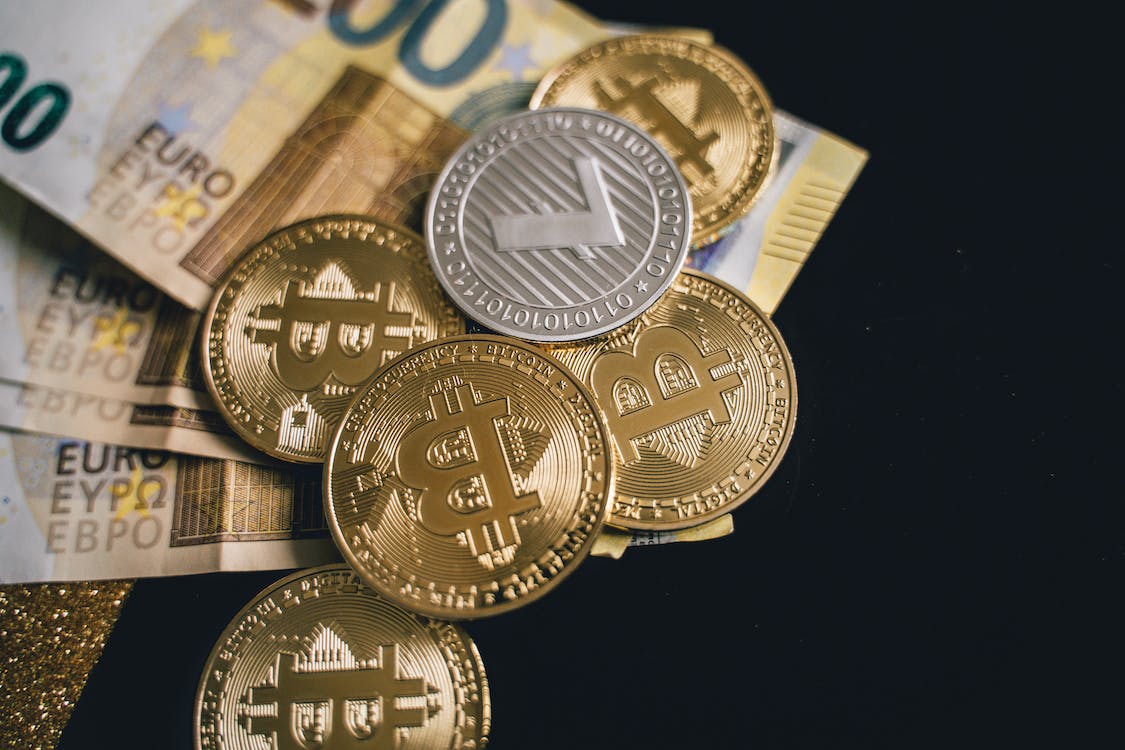Cryptocurrency, also known as digital currency or virtual currency, is a form of digital asset that uses cryptography for securing transactions, controlling the creation of new units, and verifying the transfer of assets. It is based on decentralized, distributed ledger technology called blockchain, which records all transactions in a chronological and immutable manner.
Cryptocurrencies operate independently of traditional banking systems and are not regulated or controlled by any central authority or government. Instead, they are maintained and operated by a network of computers distributed across the globe, known as nodes, that work together to validate transactions and maintain the integrity of the blockchain.
One of the defining features of cryptocurrencies is decentralization, which means that they are not controlled by any single entity. This allows for peer-to-peer transactions without the need for intermediaries, such as banks or payment processors. Transactions in a cryptocurrency network are typically verified and recorded on the blockchain, which is a public ledger accessible to anyone.
Cryptography plays a crucial role in securing transactions and protecting the privacy of users in a cryptocurrency network. It involves the use of mathematical algorithms to encode information, making it secure and tamper-proof. Transactions in a cryptocurrency network are encrypted and verified by the network of computers, ensuring their authenticity and integrity.
Another key aspect of cryptocurrencies is their transparency. Transactions in a cryptocurrency network are recorded on the blockchain, which is publicly accessible and verifiable. This allows for transparency and accountability, as all transactions are visible and auditable by participants in the network.
Cryptocurrencies are created through a process called mining, where powerful computers solve complex mathematical problems to validate transactions and add new blocks to the blockchain. Miners are rewarded with newly created cryptocurrency units as an incentive for their computational effort.
Cryptocurrencies can serve various purposes, including as a digital store of value, a medium of exchange, a unit of account, and a platform for decentralized applications (dApps) and smart contracts. Bitcoin, which was the first cryptocurrency, is primarily used as a digital store of value and a medium of exchange. Ethereum, on the other hand, is known for its smart contract functionality and supports a wide range of dApps and tokens.
Cryptocurrencies have gained attention and adoption for various reasons, including their potential for financial innovation, security, privacy, and decentralized nature. However, they also come with risks, including price volatility, regulatory challenges, and concerns about security and fraud.
In conclusion, cryptocurrency is a form of digital currency that uses cryptography and operates on a decentralized and transparent blockchain network. It offers the potential for peer-to-peer transactions without the need for intermediaries, and has various use cases and benefits. However, it also comes with risks and challenges that need to be carefully considered. As the cryptocurrency landscape continues to evolve, it is important to understand the concept and implications of cryptocurrencies for individuals and businesses alike.
How to Buy Crypto Currency
Buying cryptocurrency involves a few key steps. Here’s a general overview of the process:
- Choose a Cryptocurrency Exchange: A cryptocurrency exchange is an online platform that allows you to buy, sell, and trade cryptocurrencies. There are numerous exchanges available, so research and select one that is reputable, reliable, and suits your needs. Popular exchanges include Coinbase, Binance, Kraken, and Gemini.
- Sign Up and Complete Verification: Once you have chosen an exchange, you’ll need to sign up for an account. This typically involves providing your personal information, such as your name, email address, and phone number. Some exchanges may also require you to complete a Know Your Customer (KYC) process, which involves providing additional documentation to verify your identity, such as a passport or driver’s license.
- Fund Your Account: After completing the sign-up and verification process, you’ll need to fund your exchange account with fiat currency (such as USD, EUR, or GBP) or other cryptocurrencies, depending on the exchange. This can typically be done by linking your bank account or credit/debit card to the exchange and transferring funds.
- Place an Order: Once your account is funded, you can place an order to buy the cryptocurrency of your choice. Most exchanges offer various types of orders, such as market orders, limit orders, and stop orders, allowing you to specify the price and quantity of the cryptocurrency you want to buy.
- Store Your Cryptocurrency: Once your purchase is complete, it’s important to store your cryptocurrency in a secure wallet. Cryptocurrency wallets can be either hardware wallets (physical devices), software wallets (desktop or mobile applications), or online wallets (web-based services). Each type of wallet has its own advantages and risks, so do your research and choose one that fits your security preferences.
- Monitor Your Investment: Cryptocurrency prices can be volatile, so it’s important to monitor your investment and stay updated with market trends. You may also consider setting up price alerts or stop-loss orders to manage your risk.
It’s important to note that buying and investing in cryptocurrencies carries risks, including price volatility, regulatory changes, and security risks. It’s crucial to do your research, understand the risks, and invest only what you can afford to lose. Additionally, be aware of the tax implications of buying and selling cryptocurrencies in your country or jurisdiction.
In conclusion, buying cryptocurrency involves selecting a reputable exchange, signing up and verifying your account, funding your account, placing an order, storing your cryptocurrency securely, and monitoring your investment. It’s important to be informed and cautious when buying cryptocurrencies, and consider seeking professional financial advice if needed.
Is Crypto Currency Safe

The safety of cryptocurrency depends on various factors, and it’s important to understand the risks associated with it. Here are some key points to consider:
- Market Volatility: Cryptocurrencies are known for their price volatility, with prices often experiencing rapid and unpredictable changes. This can result in significant gains or losses in a short period of time, making it a high-risk investment.
- Cybersecurity Risks: Cryptocurrency transactions occur online and are reliant on secure technology. However, there have been incidents of hacks and security breaches in the past, resulting in the theft of cryptocurrencies from exchanges or wallets. It’s crucial to use reputable exchanges and employ best practices for securing your wallets, such as using strong passwords, enabling two-factor authentication, and keeping your private keys secure.
- Regulatory Risks: Cryptocurrencies are subject to changing regulatory environments in different jurisdictions, and regulatory measures can impact the use, exchange, and legality of cryptocurrencies. It’s important to stay informed about the regulatory landscape in your country or region and comply with any applicable laws and regulations.
- Scams and Fraud: The lack of regulation in the cryptocurrency space has also led to the emergence of scams and fraudulent schemes. Investors should be cautious of unsolicited investment opportunities, initial coin offerings (ICOs), and other suspicious activities, and thoroughly research any investment opportunities or projects before participating.
- Lack of Consumer Protections: Unlike traditional financial systems, cryptocurrencies are not backed by any government or financial institution, and transactions are irreversible. This means that if you lose your cryptocurrency due to a hack, mistake, or fraud, it may be difficult or impossible to recover your funds.
- Technology Risks: Cryptocurrencies are based on complex technologies, such as blockchain, which are still evolving and may have vulnerabilities or flaws. This could potentially impact the security and stability of cryptocurrencies in the future.
- User Errors: Cryptocurrency transactions are irreversible, and any mistakes made in sending or receiving transactions can result in permanent loss of funds. It’s crucial to double-check transaction details, wallet addresses, and other information before initiating any transactions.
Despite the risks, cryptocurrencies also offer benefits such as decentralized and borderless transactions, financial inclusion, and potential for investment gains. However, it’s important to approach cryptocurrencies with caution, do thorough research, and understand the risks involved.
To mitigate risks, consider following best practices such as using reputable exchanges and wallets, employing strong security measures, staying informed about regulatory developments, being cautious of investment opportunities, and being vigilant against scams and fraud. Consulting with a financial professional may also be beneficial, especially if you are new to cryptocurrencies or unsure about the risks involved.
In conclusion, cryptocurrency comes with inherent risks, and it’s essential to understand and manage these risks effectively. By being informed, cautious, and taking necessary precautions, you can better safeguard your investments and participate in the cryptocurrency market with greater awareness.
What is Crypto Currency
Cryptocurrency, also known as digital currency or virtual currency, is a form of digital asset.
How to Buy Crypto Currency
Buying cryptocurrency involves a few key steps like Choose a Cryptocurrency Exchange, Sign Up and Complete Verification, Fund Your Account and Place an Order.
Is Crypto Currency Safe
The safety of cryptocurrency depends on various factors, and it’s important to understand the risks associated with it.








